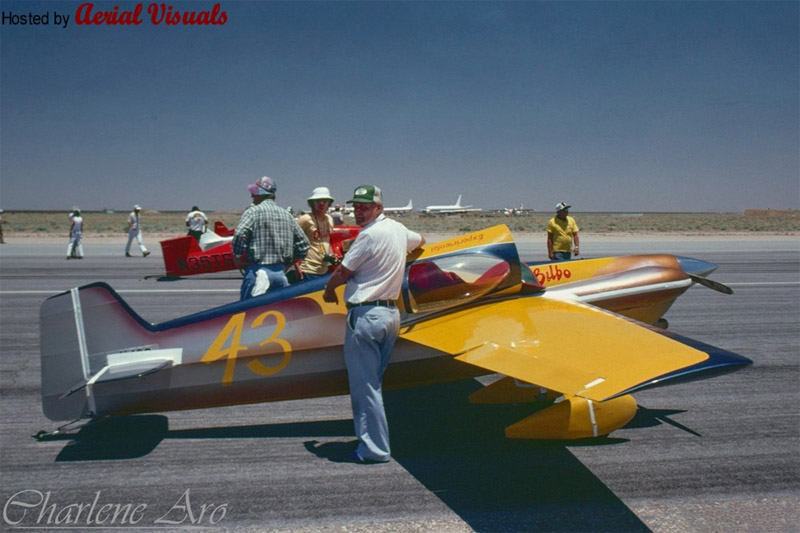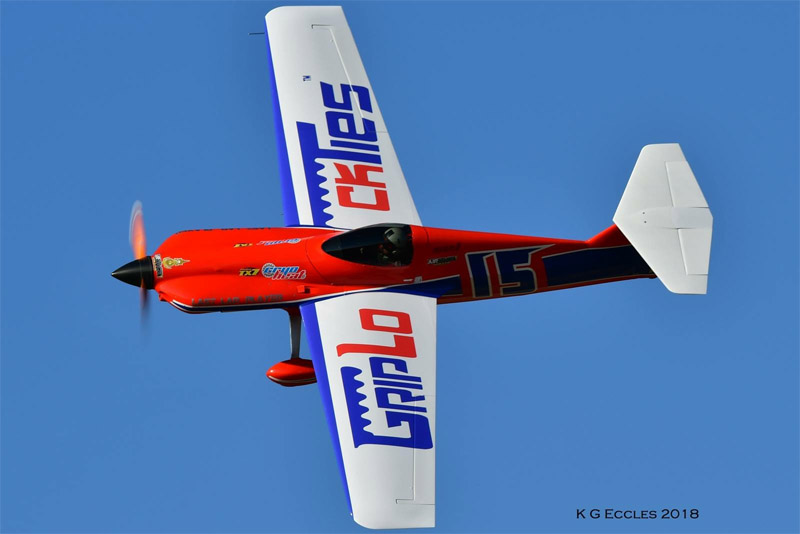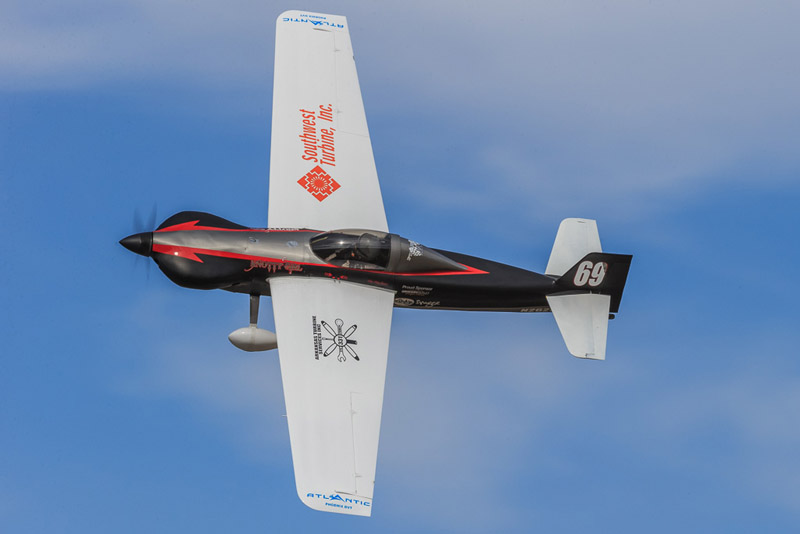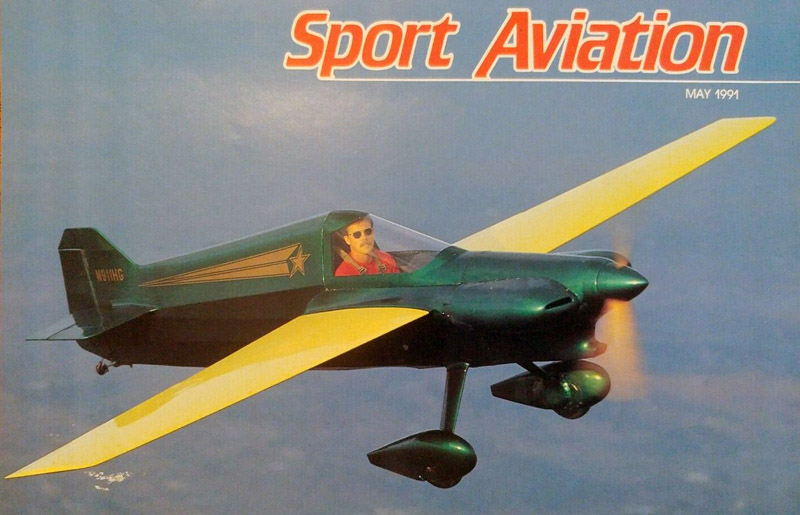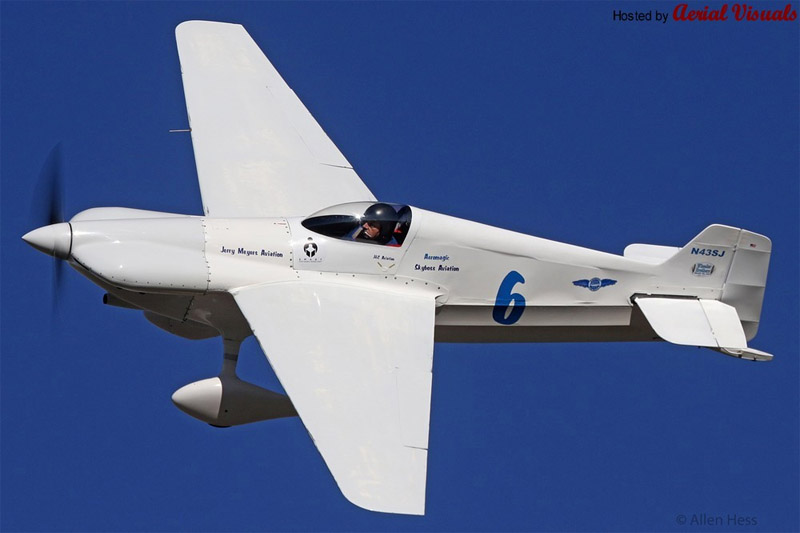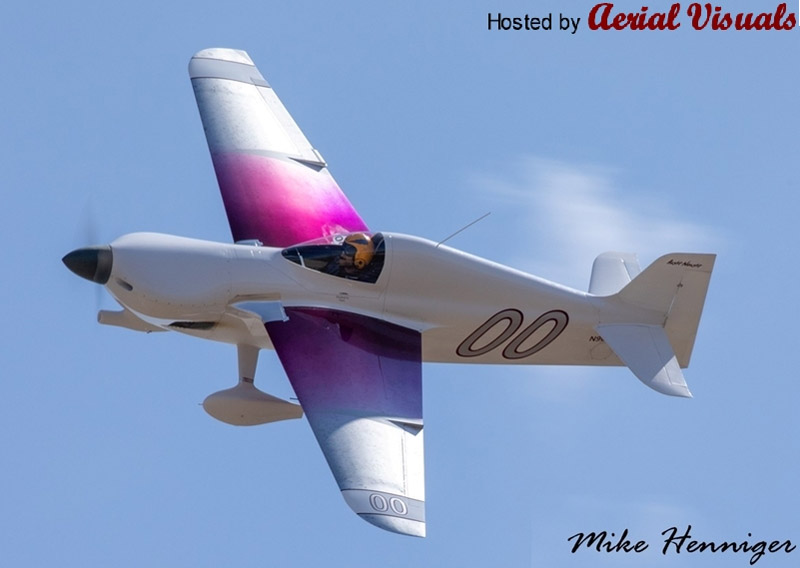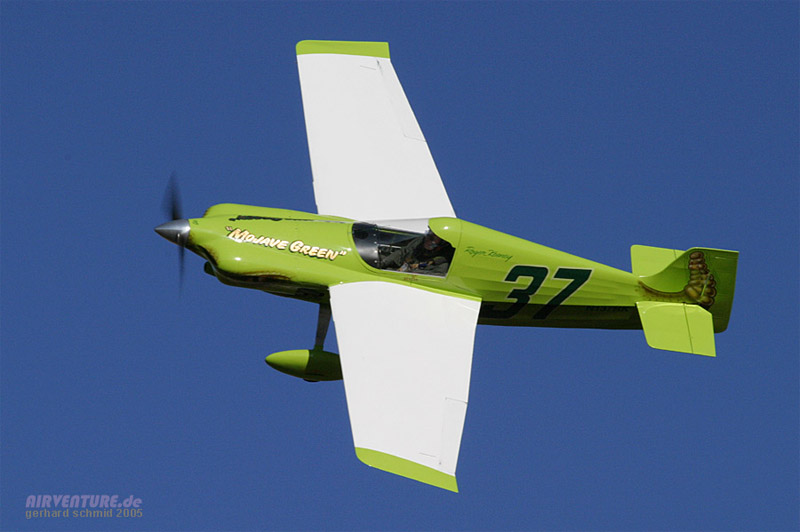Cassutt 'aftermarket' wings
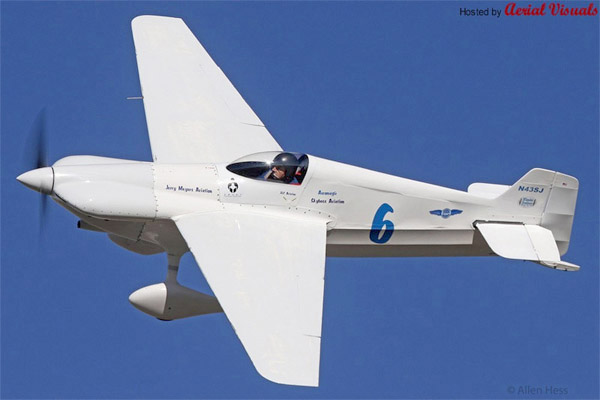
The original Cassutt 111M design had 15 or 17 foot 'slab' wings. In the early seventies, more sophisticated wings from various sources started to be installed in Cassutts, in the search of more performance. In the research for my scale model, I found confusing information on those 'aftermarket' wings. This page tries to present an overview and analysis of these wings. Note that I'm not trying to identify each individual Cassutt's wing type, or make an overview of all Cassutts with a particular wing type.
3D CAD & 3D printing
1/72 model construction
Aftermarket wings
| This is a work in progress, with frequent changes, and some research notes temporarily inserted in the text.
|
This page was quickly put together, and I haven't yet sorted out
the copyrights on the photos - my apologies to the owners
|
|
Wilson wooden wing
James (Jim) Wilson (Texas) designed a new taper wing for his second Cassutt racer, N25JW, #25, 'Plum Crazy', first flown in 1971. It was a bolt-on replacement. Called 'Wilson wing' or 'Wilson Whistler taper wing'.
Leading edge is straight, trailing edge is swept forward. 17.5' or 18' span. Looks like it has Hoerner tips. The span of the ailerons is very difficult to judge; they could be full-span.
Photo source: Aerial Visuals Airframe Dossier N25JW
| 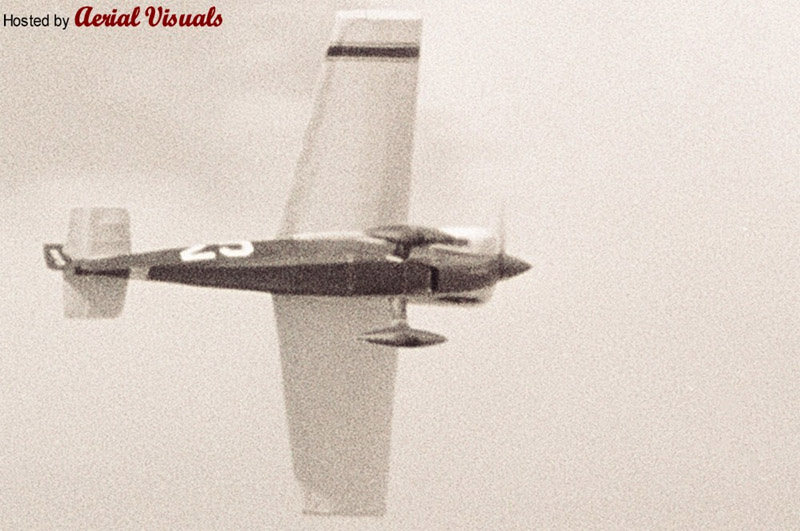
|
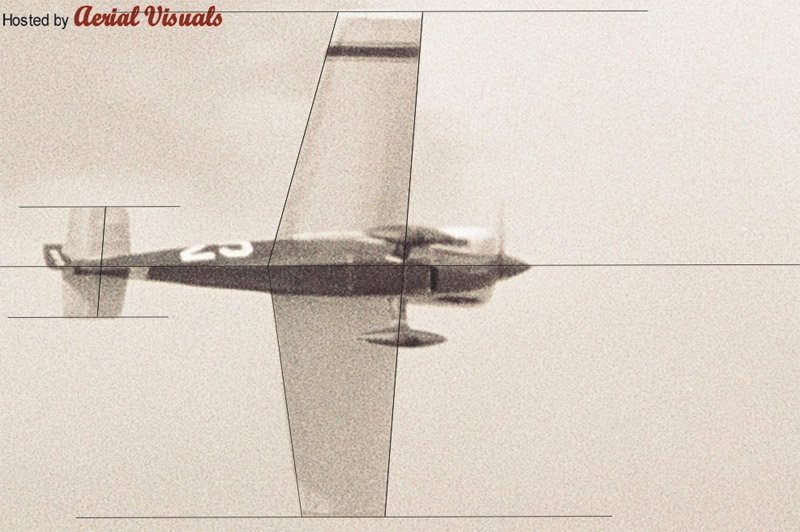
| Photo measurements: the wing span was 4.58 times the tail span. If the latter is a rounded 4'0", the wing span was ~18'4". I measure a taper ratio of 0.62. Assuming the standard area of 66 sqft, the root (centerline) chord was ~4'5" and the tip chord was ~2'9".
|
N25JW, #25, 'Plum Crazy' again. Trailing edge sweep difficult to see. Hoerner tips. Small leading edge radius, maybe like original Cassutt design?
Photo source: Ebay
| 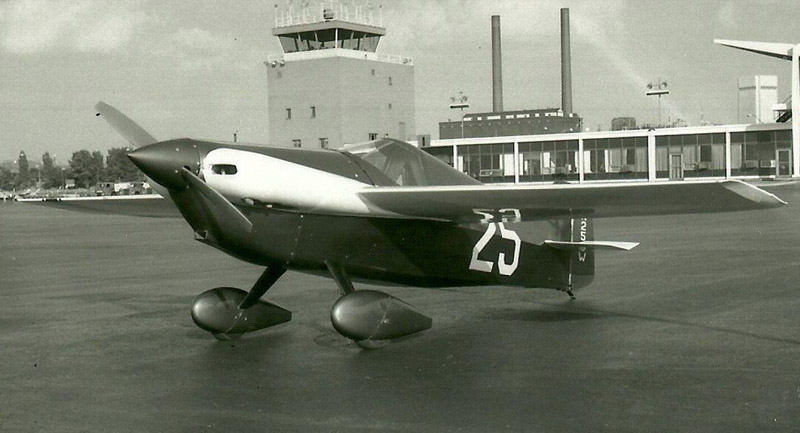
|
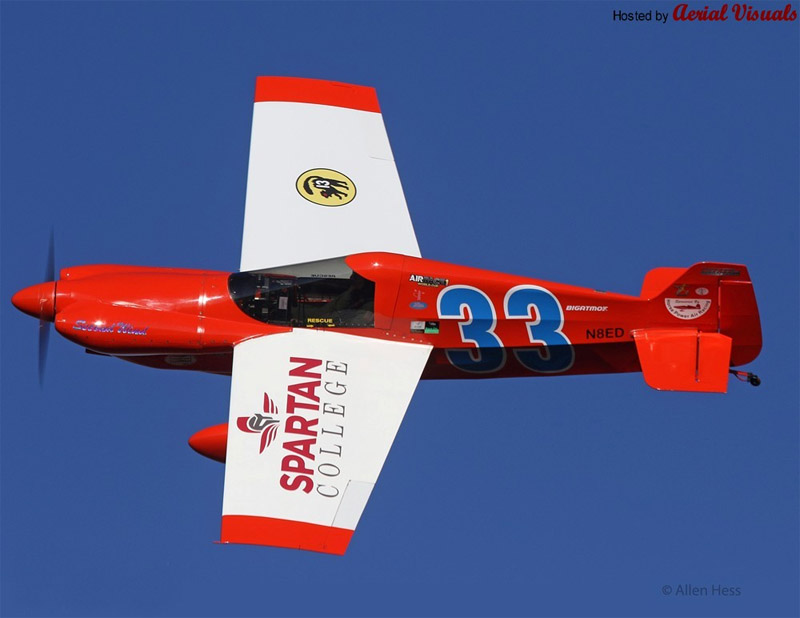
| N8ED #33 'Second Wind' built and raced by Ed Dutreaux, looks like it has a Wilson wing, and now the ailerons can be seen clearly. The curved wing tip line suggests Hoerner tips.
Photo source: Aerial Visuals Airframe Dossier N8ED
|
Photo measurements: the wing span was 3.78 times the tail span. But the latter wasn't standard, with tip caps, so we can't calculate the wing span from it.
I measure a taper ratio of 0.60. Copying the wing span figure of ~18'4" from the previous analysis, and assuming the standard area of 66 sqft, the root (centerline) chord was ~4'6" and the tip chord was ~2'8".
Aileron span is 15.5% of the wing span, ~2'10".
| 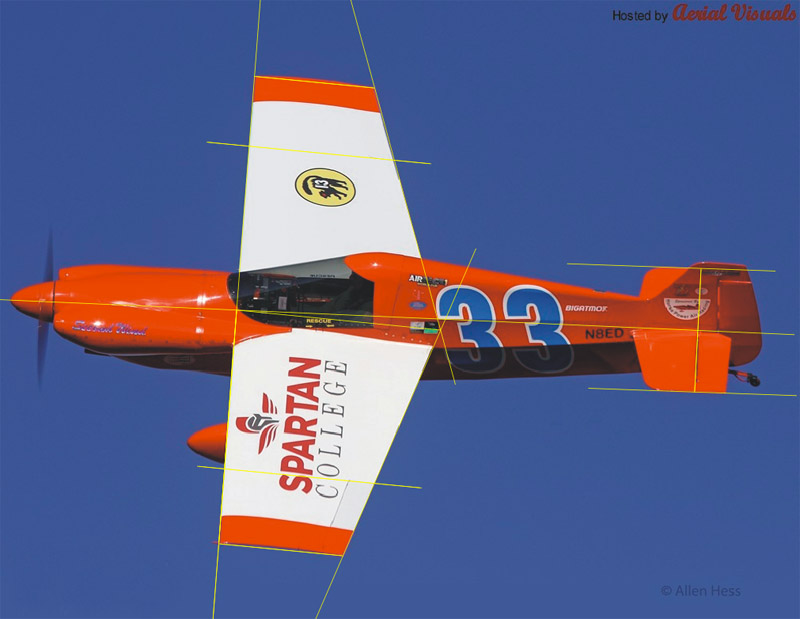
|
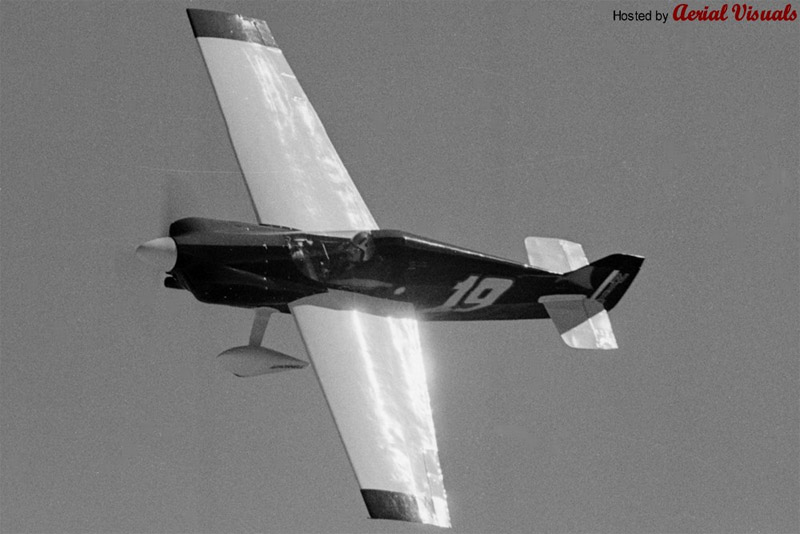
| N119 #19 'Okie Streaker', owned / raced by George Budde, also appears to have a Wilson wing. The ailerons are difficult to distinguish, but appear to be of similar span as the previous photo.
Photo source: Aerial Visuals Airframe Dossier N119
|
This looks like a Wilson wing. The ailerons are painted in a different color. The ailerons have a larger span than N8ED in the previous photo. N4651T #51 owned / raced by William (Bill) Sullivan.
Photo source: Aerial Visuals Airframe Dossier N4651T
| 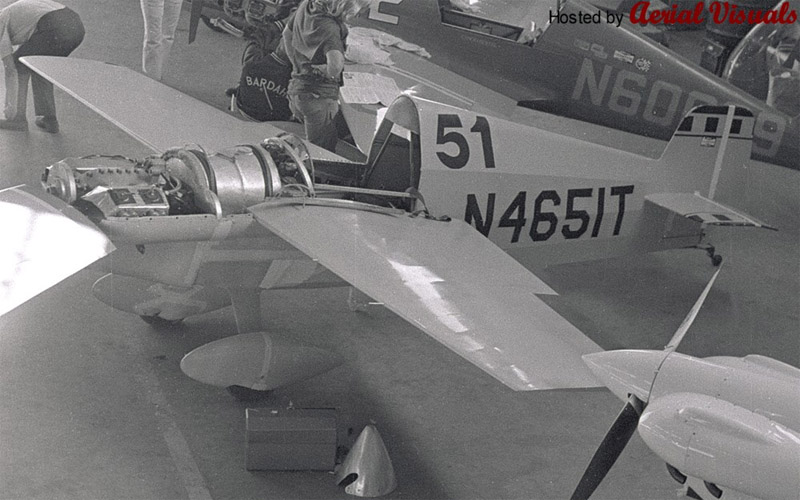
|
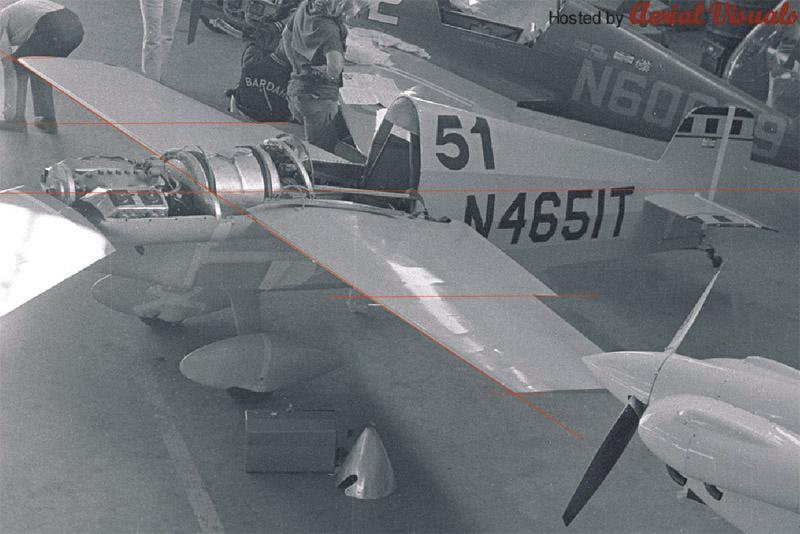
| Photo analysis of the ailerons gives 24% of wing span. Assuming the unverified span of 18'4", this gives an aileron span of ~4'5".
|
A Wilson wing built by Homebuilt Airplanes Forum member 'thom'. The project was sold before he flew it. The ailerons are difficult to distinguish, but appear to be full-span like the original 15 ft slab wing.
Photo source: Homebuilt Airplanes Forum
| 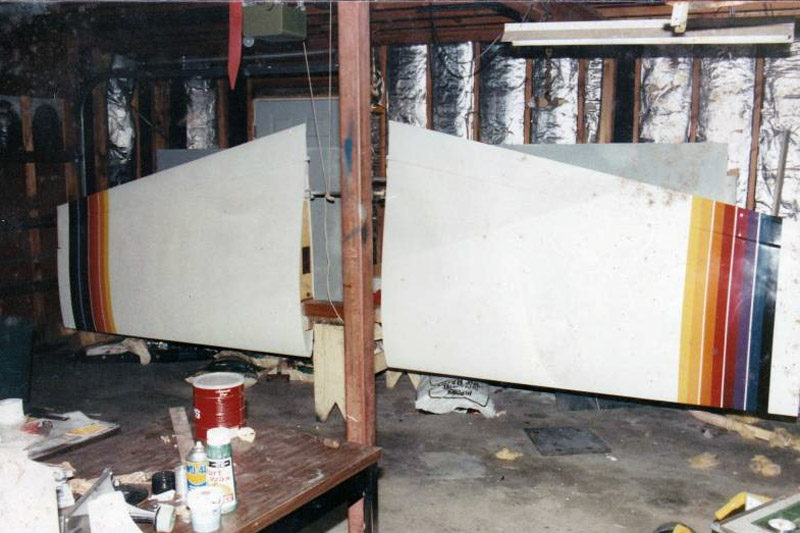
|
| Wilson wing data
|
| Span (ft in)
| 17.5 or 18 or 18'4"
|
|
| Area (sqft)
| 66
| not confirmed
|
| Aspect ratio (-)
| 4.91
| using 18' span
|
| Taper ratio (-)
| around 0.6
| from photo analysis
|
| Quarter chord sweep (deg)
| ~ -2.8
| from span and chord numbers
|
| Leading edge sweep (deg)
| 0
|
|
| Trailing edge sweep (deg)
| ~ -11
| from span and chord numbers
|
| Profile
| ?
|
|
| Geometric twist (deg)
| ?
|
|
| Root (centerline) chord (ft in)
| ~ 4'5" to 4'6"
| from photo analysis
|
| Tip chord (ft in)
| ~ 2'8" to 2'9"
| from photo analysis
|
| Aileron span
| ?
|
|
| Tip shape
| Hoerner
|
|
| Materials
|
|
|
| Weight
|
|
|
| A table with the data gathered so far.
|
Check: N102 #6 'Okie Stroker' George Budde, https://airport-data.com/aircraft/photo/001817696.html
https://www.homebuiltairplanes.com/forums/threads/cassutt-looking-for-anyone-who-knows-anything-about-it.22674/page-3
Stockbarger wooden wing
The late Ken Stockbarger designed a new wing for Jon Sharp's Cassutt, N43SJ #43 'Aero Magic'. It was known as the 'Stockbarger wing' and used on other Cassutts too. A set of plans was available. One other Cassutt with Stockbarger wing is N46785 #25 'Gold Fever', see Aerial Visuals Airframe Dossier N46785 in which a Stockbarger wing is mentioned.
Almost 20 foot span, conventional spruce/fir and mahogany ply construction. Double taper wing, as in both leading and trailing edges swept. The rear spar has a splice partway span. Rights currently owned by Andrew Buehler, who owns the Cassutt rights.
No dimensional data could be found so far. Taper ratio looks quite modest.
Photo source: Aerial Visuals Airframe Dossier N43SJ
| 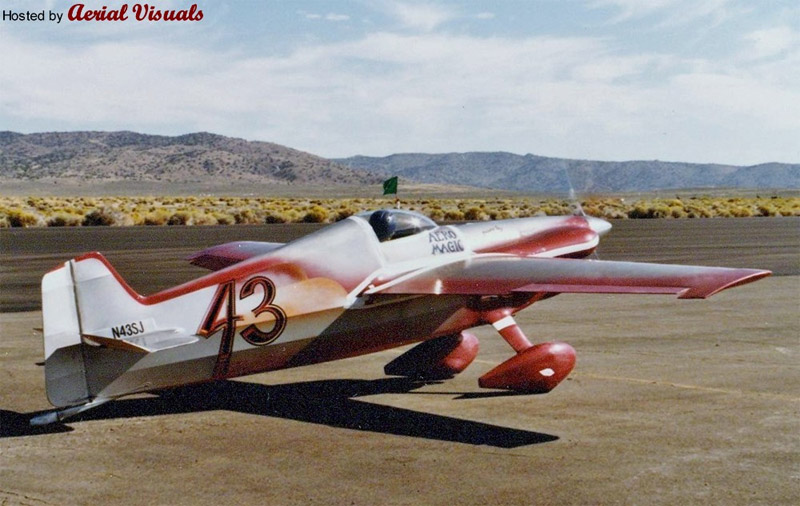
|
| A table with the data gathered so far, which is very little.
|
| Stockbarger wing data
|
| Span (ft in)
| 19.5'
" almost 20' "
| Source: Homebuilt Aircaft, September 1984, page 32
|
| Area (sqft)
| 66
| not confirmed
|
| Aspect ratio (-)
| around 5.8
|
|
| Taper ratio (-)
|
|
|
| Quarter chord sweep (deg)
|
|
|
| Leading edge sweep (deg)
| ?
|
|
| Trailing edge sweep (deg)
| ?
|
|
| Profile
| ?
|
|
| Geometric twist (deg)
| ?
|
|
| Root (centerline) chord (ft in)
| ?
|
|
| Tip chord (ft in)
| ?
|
|
| Aileron span
| ?
|
|
| Tip shape
|
|
|
| Materials
| spruce/fir spars
mahogany plywood skins
|
|
| Weight
|
|
|
|
Owl wooden wing
The late George Owl designed the OR-series aircraft, OR-65, OR-70 and OR-71. During the late seventies / early eighties, the Owl wings started to find themselves on Cassutts. But it is unclear which Owl wing(s) was (were) used on Cassutts. Here are the main numbers for the Owl wings:
OR-65 wing: span 16'0", area 66 sqft, aspect ratio 3.88, profile 63A210
OR-65-2 wing: span 16'
OR-70-1 wing: span 20'0", area 66 sqft, aspect ratio 6, root chord 4'2", tip chord 2'6", 13.7% profile
OR-71 wing: same dimensions, but outer 60% of wing is 10%
|
The Cassutt Owl wing design is now owned by Andrew Buehler, who also owns the Cassutt rights.
As an example, a photo from the 1974-1975 Jane's, of Owl OR-70 N711BS #11 'Fang' by James Stevenson. See Aerial Visuals Airframe Dossier N711BS.
Photo source: 1974-1975 Jane's All The World's Aircraft
| 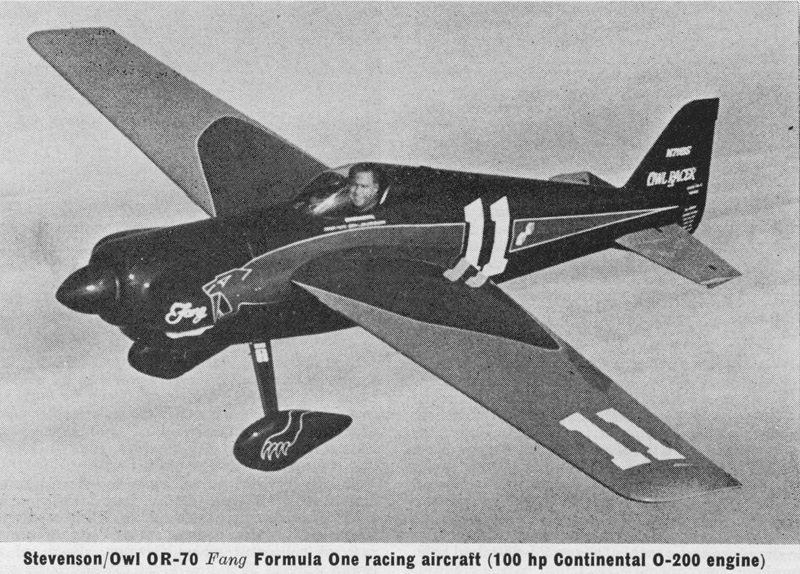
|
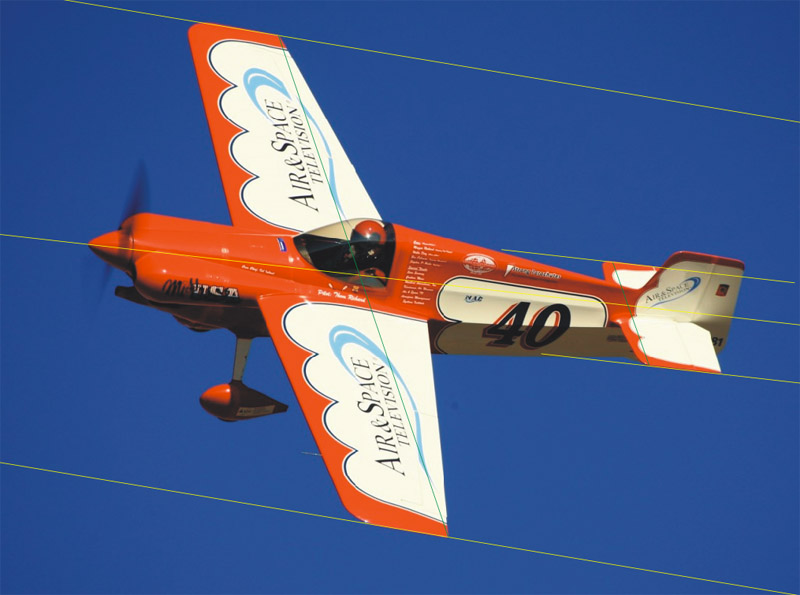
| I made measurements in the photo, and found that the wing span was 4.83 times the tail span. If the latter is a rounded 4'0", the wing span was 19.5', close to the 20' of the OR-70 wing.
|
| Owl wing data
|
| Span (ft in)
| 20'0"
| Jane's
|
| Area (sqft)
| 66
| Jane's
|
| Aspect ratio (-)
| 6.1
| Jane's
|
| Taper ratio (-)
| 0.60
| Jane's
|
| Quarter chord sweep (deg)
|
|
|
| Leading edge sweep (deg)
|
|
|
| Trailing edge sweep (deg)
|
|
|
| Profile
| 13.7%
| outer section 10% if OR-71 based
|
| Geometric twist (deg)
| ?
|
|
| Root (centerline) chord (ft in)
| 4'2"
| Jane's
|
| Tip chord (ft in)
| 2'6"
| Jane's
|
| Aileron span
| ?
| Jane's lists 6.1 sqft area
|
| Tip shape
|
|
|
| Materials
| laminated spruce one-piece main spar
plywood ribs with spruce caps
plywood skins
|
|
| Weight
|
|
|
| A table with the data gathered so far, with the assumption that the Owl OR-70 and/or OR-71 wing was used.
|
Cosgrove / Moeller metal wing
A metal tapered wing, probably a one-of, designed by Don Cosgrove (source) and built by air force personel, for B/Gen Robert Moeller, for N2081 #81 'Boo Ray'. Raceair: "I have the original Don Cosgrove wing airfoil lofts for your wing. It was a nasty wing in some respects, but mostly it was a very heavy wing. I helped assemble that airplane a couple times when Col. Moeller owned her, and that wing must have weighed 180 pounds!!" (source)
Grove composite wing
Cassutt 11M (not 111M) N2081 #81 'Boo Ray' owned by William (Bill) Berle (Victor Bravo on www.homebuiltairplanes.com) had a Grove-built composite wing and tail during (at least) 1988-1989. See Aerial Visuals Airframe Dossier N2081. Bill Berle: "In 1988-89 I raced the F-1 raceplane 'Boo Ray' race #81". (source). "It had a 20.5 foot span, 64-209 profile with the lower cusp removed" (source). "It in scared the tar out of me" (source)
It looks like the leading edge has more sweep than the trailing edge. Several were built.
Robert Grove, Grove Aircraft, Gillespie Field, El Cajon CA. https://www.groveaircraft.com/
Photo source: Air Britain Photographic Images Collection
| 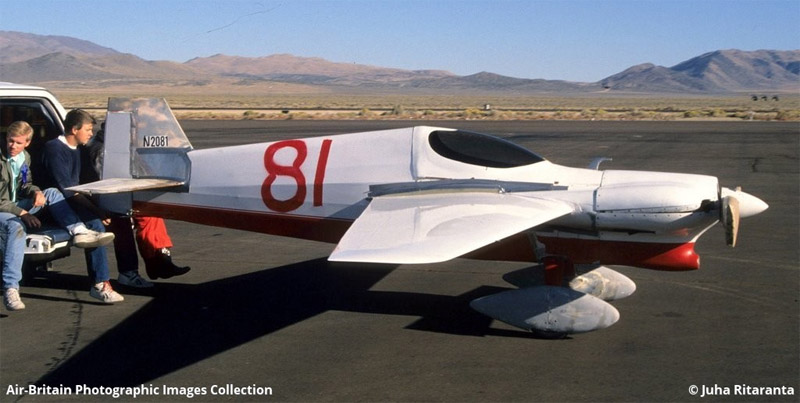
|
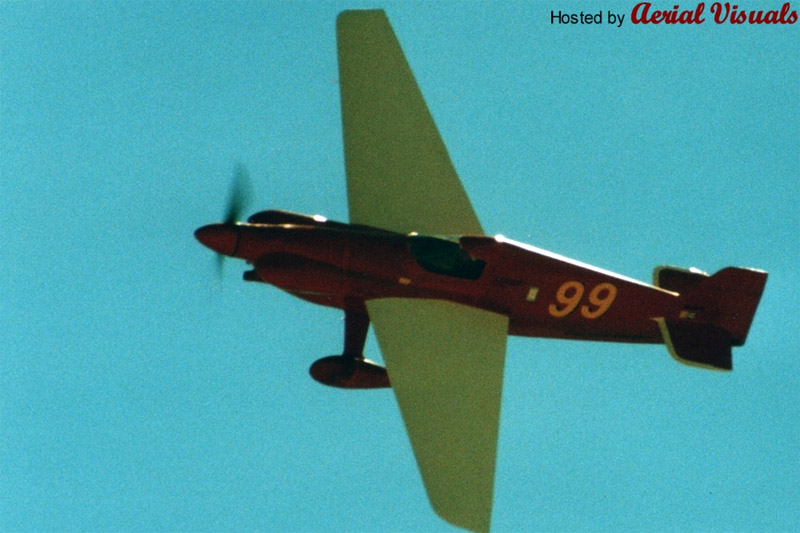
| N6884 #33 'Sahara' Scott Morris, later Dave Morss. This Cassutt also has a Grove wing, and this photo gives a first view of the wing planform.
Photo source: Aerial Visuals Airframe Dossier N6884
|
N6884 #99, 'What Airplane, Honey?' Timothy Cone. The same aircraft but later, presenting a great view of the wing planform. The tips are like that of the SR-1, angled with respect to the aircraft axis.
Photo source: Aerial Visuals Airframe Dossier N6884
| 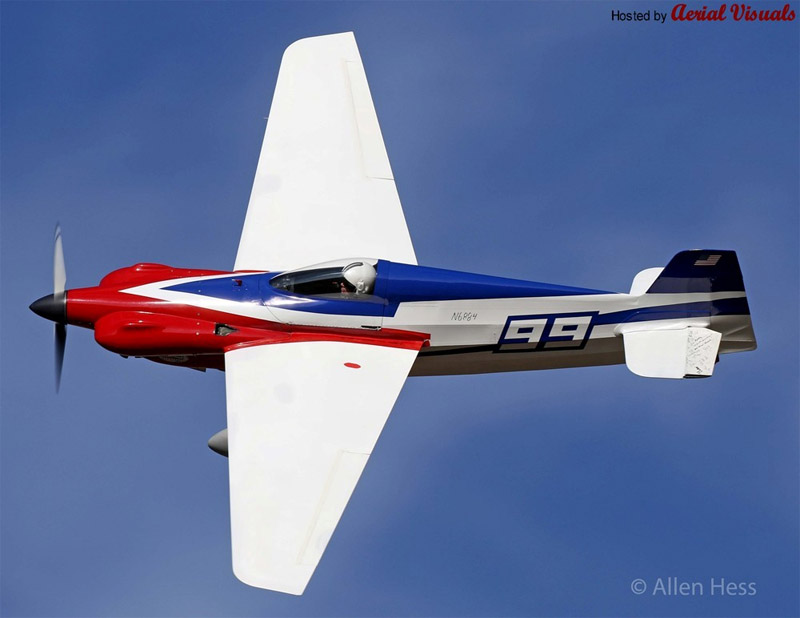
|
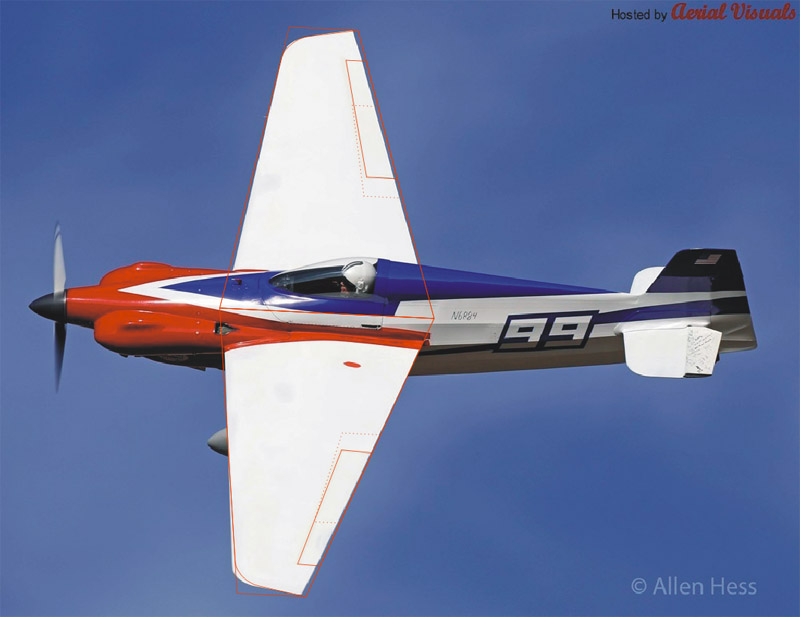
| In this photo analysis the Snoshoo wing planform was laid over the wing. It fits roughly, showing that the planform is similar but not identical. The ailerons are more outboard and of larger span but smaller chord.
|
N17517 #6 'Yellow Peril', raced by Doug Bodine, appears to have a Grove wing too, judging from the planform and the aileron position.
Photo source: JetPhotos
| 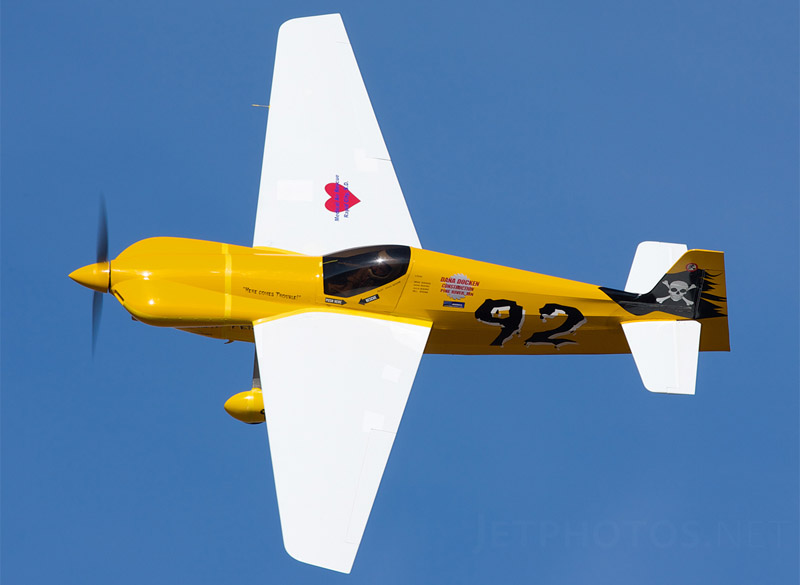
|
| Grove wing data
|
| Span (ft in)
| 20.5
|
|
| Area (sqft)
| 66
| not confirmed
|
| Aspect ratio (-)
| 6.4
|
|
| Taper ratio (-)
|
|
|
| Quarter chord sweep (deg)
|
|
|
| Leading edge sweep (deg)
|
|
|
| Trailing edge sweep (deg)
|
|
|
| Profile
| 64-209 with the lower cusp removed
|
|
| Geometric twist (deg)
| ?
|
|
| Root (centerline) chord (ft in)
|
|
|
| Tip chord (ft in)
|
|
|
| Aileron span
| ?
|
|
| Tip shape
| 'Bagley-Beasley' wingtips'
45 degree 'sheared' shape
| possibly refers to aerodynamicists
J. A. Bagley (UK) and William Beasley (US)
|
| Materials
| glassfiber and foam
Rutan moldless method
wet hand layup
|
|
| Weight
|
|
|
| Notes
| different style spar hold-down:
inverted-U-shaped straps, with
D-shaped blocks on top of the spar
|
|
| A table with the data gathered so far.
|
Maybe the Grove wing planform is similar to the SR-1 wing, but with different wing tips??
Gibson composite wing
Snoshoo wing
The SR-1 Snoshoo is a development of the Rod Kreimendahl-designed and Carl + Vincent Ast-built 'Shoestring' from 1949, raced until at least 1975. 'Snoshoo' stands for 'iS NO SHOestring'.
The website reports that the SR-1 has a Ken Stockbarger designed wooden wing. This wing is also suitable for the Cassutt, although it's not identical: the SR-1 wing has a (sort of) continuous rear spar (see SR-1 photos), whereas the Cassutt Snoshoo wing has discontinuous rear spars. The SR-1 wing was reportedly developed and flown on a Cassutt.
The SR-1 general arrangement drawing lists a span of 19'11", 66 sqft area, aspect ratio 6.01, taper ratio 0.35, tip chord 21" and inboard ailerons. It follows that root (centerline) chord is 60".
Drawing source: SR-1 3-view
| 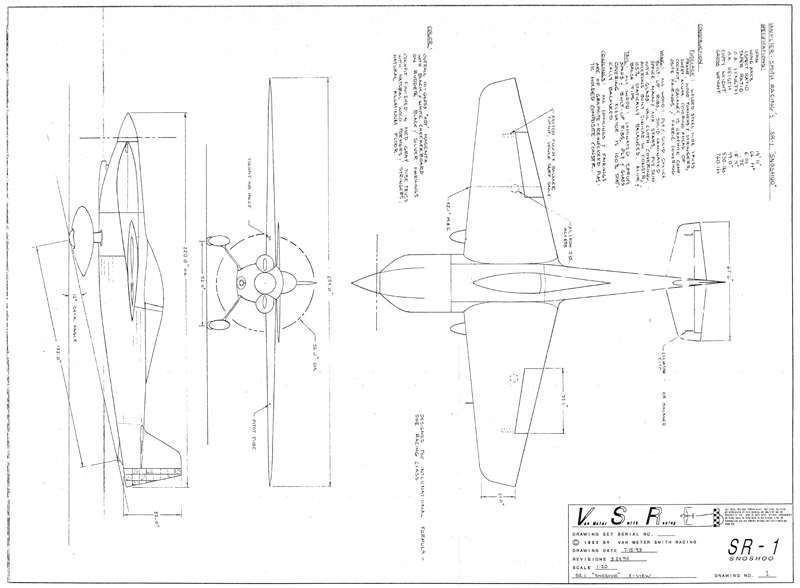
|
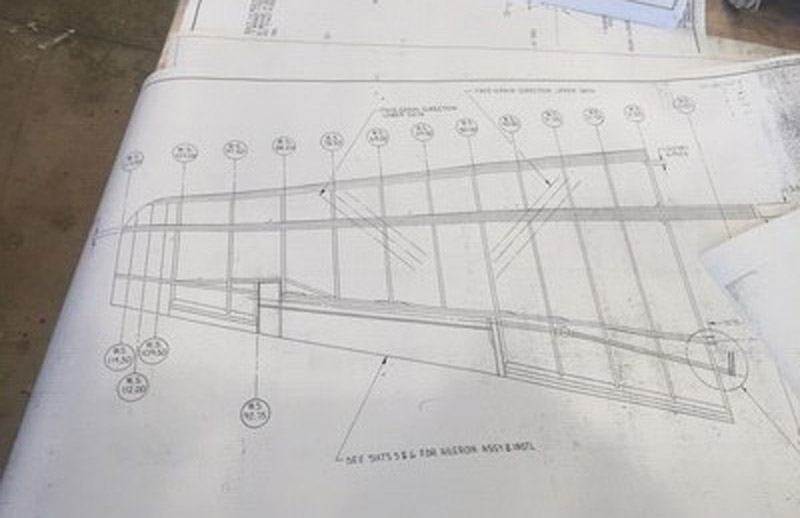
| On the former website of Creighton King's CassuTT Aircraft (retrieved via Wayback Machine) I found an example of the wing drawings that they sold. I *think* the photo shows the Snoshoo wing, mostly based on the aileron position.
|
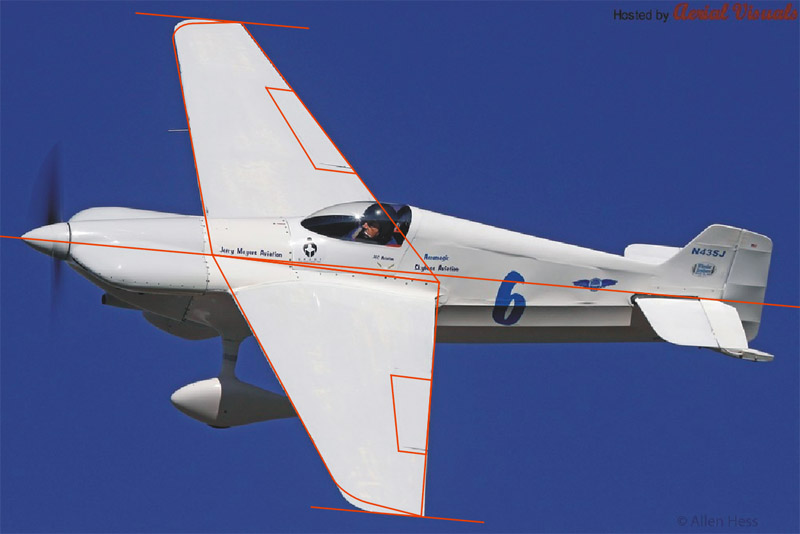
| A photo analysis shows that the SR-1 wing planform (copied from the general arrangement drawing) fits well over this photo. The only deviation is seen at the tips, that are not angled like the SR-1, but parallel with the aircraft axis.
|
| A table with the data gathered so far, mostly based on the SR-1 general arrangement drawing.
|
| Snoshoo wing data
|
| Span (ft in)
| 19'11"
| shown on drawing
|
| Area (sqft)
| 66
| shown on drawing
|
| Aspect ratio (-)
| 6.01
| shown on drawing
|
| Taper ratio (-)
| 0.35
| shown on drawing
|
| Quarter chord sweep (deg)
| 1.0
| measered in drawing
|
| Leading edge sweep (deg)
| 5.8
| measered in drawing
|
| Trailing edge sweep (deg)
| 13.4
| measered in drawing
|
| Profile
| ?
|
|
| Geometric twist (deg)
| ?
|
|
| Root (centerline) chord (ft in)
| 5'0"
| measered in drawing
|
| Tip chord (ft in)
| 1'9"
| shown on drawing
|
| Aileron span
| ?
|
|
| Tip shape
|
|
|
| Materials
| spruce main spar
ply skins, glass fabric covered
ply + spruce ribs
|
|
| Weight
| 130 lbs incl paint
| source
|
|
To be checked: N603R, N17517
Catto composite wing
| Catto wing data
|
| Span (ft in)
|
|
|
| Area (sqft)
|
|
|
| Aspect ratio (-)
|
|
|
| Taper ratio (-)
|
|
|
| Quarter chord sweep (deg)
|
|
|
| Leading edge sweep (deg)
|
|
|
| Trailing edge sweep (deg)
|
|
|
| Profile
|
|
|
| Geometric twist (deg)
|
|
|
| Root (centerline) chord (ft in)
|
|
|
| Tip chord (ft in)
|
|
|
| Aileron span
|
|
|
| Tip shape
|
|
|
| Materials
|
|
|
| Weight
|
|
|
| A table with the data gathered so far.
|
Question marks - just some examples
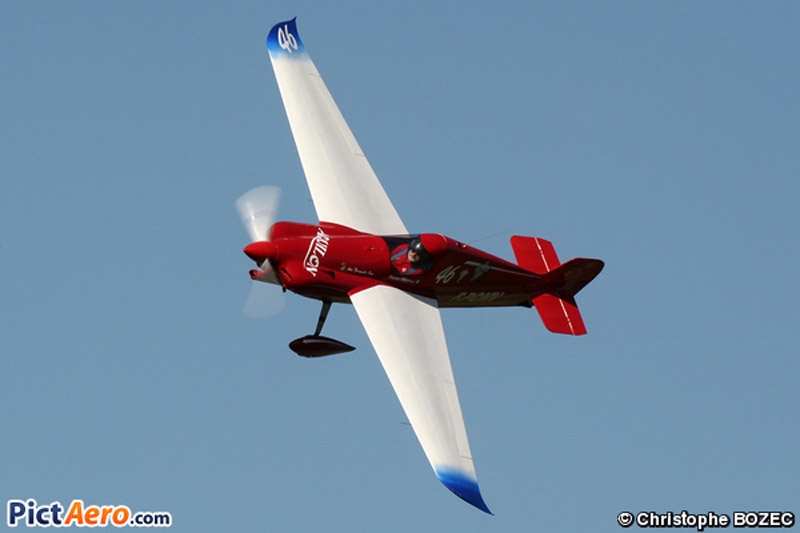
| F-PCMV #46, with maybe an Owl wing, with special swept wing tips? The profile looks like it has more camber and maybe a bit of reflex?
Photo source: PictAero
|
https://www.homebuiltairplanes.com/forums/threads/cassutt-looking-for-anyone-who-knows-anything-about-it.22674/page-4
https://groups.google.com/g/rec.aviation.homebuilt/c/glY20SWYkCI/m/88_Vz1Yb0GAJ
Return to models page











